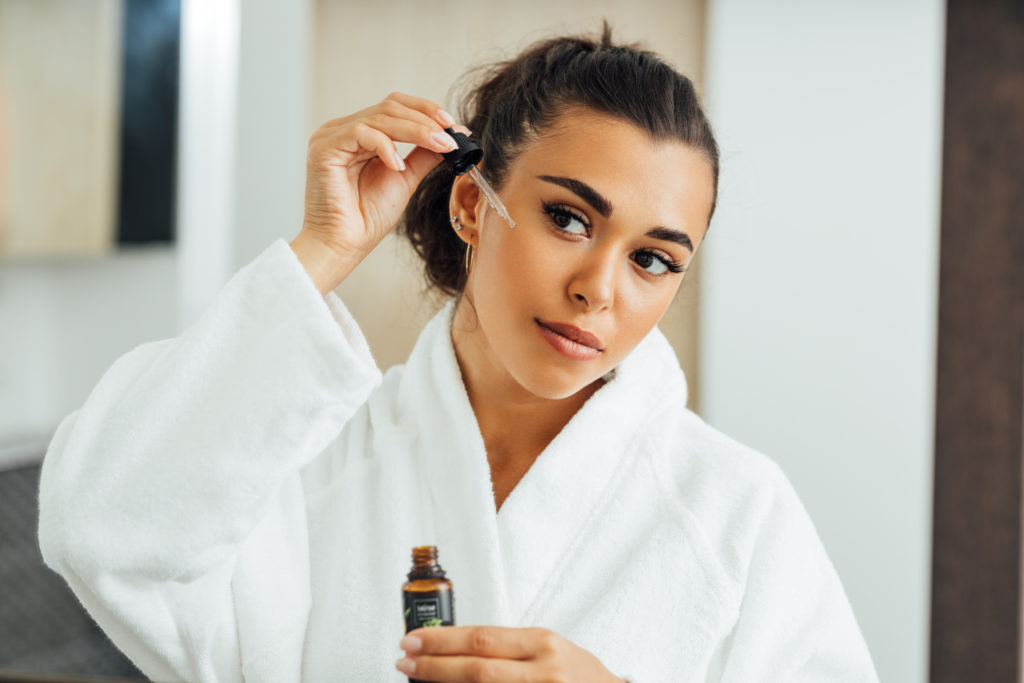If you’re serious about skincare, you’re probably familiar with the term “active ingredients.” These are the elements of a product that work to deliver the advertised benefits. When packaging promises that a product will smooth fine lines, boost skin’s radiance or fight acne, it’s the active ingredients that will make the product effective in doing so. But the power of these ingredients sometimes comes at a cost — as with any medication, side effects can occur. One of the most common side effects of high-octane skincare products is photosensitivity.
Photosensitivity is increased skin sensitivity or an unusual reaction when your skin is exposed to ultraviolet (UV) radiation. If your skin is extra sensitive to the sun, it’s easier to sustain skin damage that can lead to skin cancer and premature skin aging. So which ingredients can cause this condition, and what can you do about it?
A Powerhouse Problem
Ironically, it’s some of skin care’s most effective ingredients that can cause the biggest headache when it comes to sun sensitivity. Retinol, touted by many as the holy grail of flawless skin, can help encourage collagen production, blur fine lines and even skin tone. Unfortunately, it can also make you extra sensitive to sun damage.
“Ingredients that exfoliate or encourage skin cell turnover are the biggest culprits of causing photosensitivity,” says Deborah S. Sarnoff, MD, president of The Skin Cancer Foundation. “When you remove dead skin cells and expose the new, more delicate skin underneath, your skin becomes more susceptible to damage from UV rays.”
In the same vein, alpha and beta hydroxy acids (AHAs and BHAs) — chemical exfoliants known for anti-aging benefits and acne fighting properties — can leave skin oversensitive as well. Brightening ingredients, like hydroquinone, work by reducing the amount of melanin in the skin, thereby reducing the skin’s natural defenses against UV rays.
“Many products with these ingredients will have a “sunburn alert” or other language on the packaging warning that the product may increase sensitivity to the sun,” says Dr. Sarnoff, who notes that some prescription topicals, such as antibiotic or antifungal creams, can cause photosensitivity as well. “If you’re unsure about the risks of sun sensitivity from a product you are using for acne, anti-aging or sunspot treatment, talk to your dermatologist.”
Protect your Glow
If you’ve incorporated active ingredients like retinol, glycolic acid and salicylic acid into your skin routine, you’ve taken a great first step in keeping your skin clear and smooth . The next step is ensuring you always protect your skin in the sun, so these efforts don’t go to waste — unprotected exposure to UV rays can undo any progress you make by causing signs of aging and dryness. Dr. Sarnoff says there are steps you can take to protect your skin from side effects if you choose to use ingredients that may cause photosensitivity.
“One option is to use products with ingredients that cause sun sensitivity only at night,” she says. “Retinol is actually rendered less effective by sunlight, so it’s doubly important to keep UV rays from reaching your skin while you use it.”
The most important thing is maintaining a robust sun protection routine. “Regardless of if or when you use skin care products that cause photosensitivity, sun protection is important every day,” says Dr. Sarnoff. “You should be extra vigilant about applying sunscreen if you’re also using a retinol, AHAs, BHAs or hydroquinone.”
She recommends choosing a broad-spectrum sunscreen with an SPF of at least 30. In addition, cover up with clothing including a broad-brimmed hat and UV-blocking sunglasses. Lastly, seek shade and avoid peak sun hours between 10 AM and 4 PM. If you’re careful about avoiding unprotected exposure, you can be confident your glycolic acid serum or retinol eye cream won’t sabotage you. In fact, combining these skin care superstars with proper sun protection is the perfect recipe for flawless skin.





